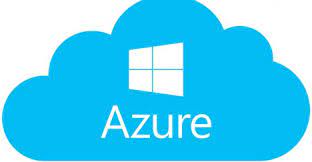In today's tech-driven world, it's hard to escape the buzz around "the cloud." And no, we're not talking about those fluffy white things in the sky. We're diving headfirst into the digital realm to unravel the mysteries of cloud technology, with a focus on Microsoft Azure. So, grab your favorite beverage, get comfy, and let's demystify what all the hype is about!
The Cloud: Beyond Mere Buzzwords
You've probably heard terms like "the cloud," "cloud computing," and "Azure" thrown around, and it all sounds pretty nebulous. But fret not, because we're breaking it down in plain English. The cloud, in tech speak, is not just a place in the sky where data floats around. It's a network of servers and data centers that store and manage information, and it's accessible over the Internet.
Enter Microsoft Azure
Think of Microsoft Azure as one of the star players in the cloud game. It's like a supercharged digital playground for businesses and developers. Azure offers a plethora of services, from data storage to running applications, all in this virtual space. Businesses use it to streamline operations, enhance productivity, and scale up without investing in heavy-duty hardware.
Why Azure?
But why choose Microsoft Azure over other cloud providers? Well, there's a good reason. Microsoft has been in the tech game for a long time and brings heaps of expertise to the table. Azure's global reach, robust security measures, and a vast array of services make it a compelling choice for many. Whether you're a small business or a giant corporation, Azure can cater to your needs.
Democratizing Technology
One of the coolest aspects of Azure is that it's not just for the tech elite. It democratizes technology by offering tools that let anyone, even non-techies, build and manage their own apps and services. So, if you've got a brilliant idea for the next killer app, you don't need a computer science degree to get started.
Scalability and Flexibility
In the traditional world of on-premises servers, if your business suddenly booms, you'd be faced with the daunting task of buying more hardware, setting it up, and maintaining it. Azure, on the other hand, allows you to scale up or down as your business demands. You pay only for what you use, which can save you heaps of money and headaches.
Security First
We can't talk about the cloud without mentioning security. Azure takes your data's safety seriously. With features like encryption, firewalls, and regular security updates, your information is guarded like a treasure in a fortress. This is crucial because data breaches and cyberattacks are real threats in our digital age.
Getting Started
If you're thinking, "Okay, Azure sounds great, but how do I get started?" Don't worry; Microsoft offers plenty of resources and documentation to help you along. You can start with a free trial to get your feet wet and explore what Azure can do for you.
The Future is in the Clouds
The cloud isn't just a tech fad; it's the future. Businesses of all sizes are harnessing the power of cloud technology to innovate, collaborate, and thrive. Microsoft Azure, with its wealth of features and capabilities, is a crucial player in this game. It's not just for the tech giants; it's for you and me, the everyday dreamers and doers.
So, next time you hear "cloud," you'll know it's not just a meteorological phenomenon. It's the digital frontier where possibilities are endless, and Microsoft Azure is your trusty guide to navigating this ever-expanding landscape. The cloud is here to stay, and Azure is leading the way into a future that's brighter and more connected than ever before.


No comments yet